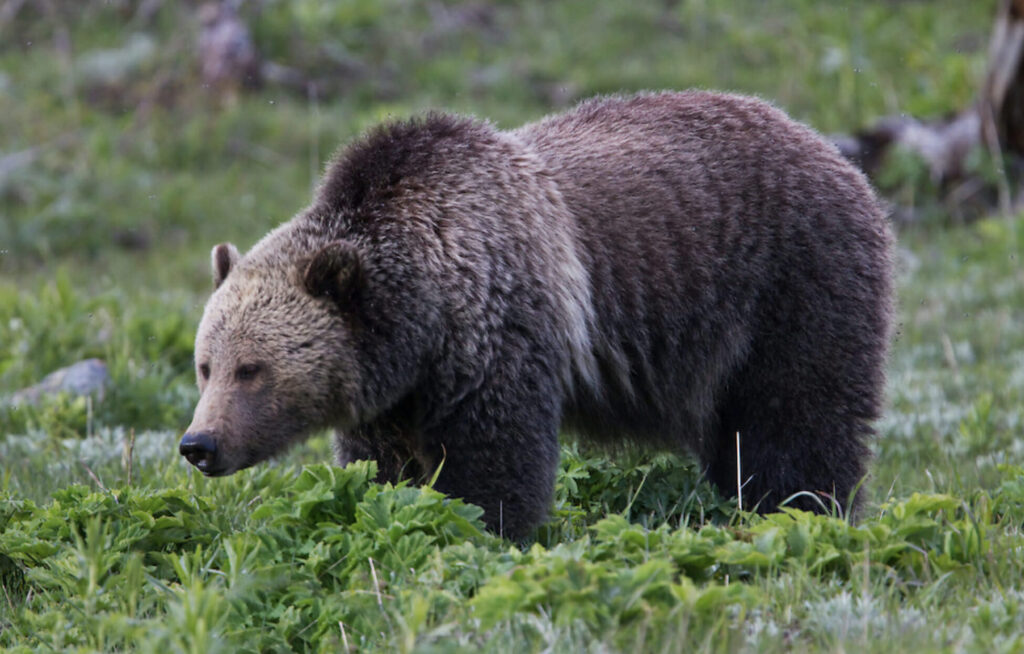Editor’s Note: James A. McLaughlin will read and sign copies of “Bearskin” at 5 p.m. Monday, August 20, 2018, in Off-Square Books.

In “Bearskin,” a gripping, intelligent thriller, crime comes up against the natural world – poachers and drug cartel gunmen against a Virginia forest preserve and its wary, dogged caretaker.
Rice Moore works as caretaker for the Turk Mountain Preserve, seven thousand acres of Blue Ridge forest. Rice is new to the mountains. In his home state of Arizona, he did ecology field work in the desert along the border, and found it too easy to cross the line into smuggling. Marked for vengeance by the Sinaloa drug cartel, he has fled east, into deep woods that he slowly comes to understand.
The forest may seem mythic, but there is nothing folksy or funny about mountain life. Mountain people cling to false folklore, asserting that blacksnakes mate with rattlers. Small-town bars smell of sweat and sawdust; they harbor “gangster wannabes, small-time pot-dealers and oxy slingers, part of the surly crowd.”
The oxy slingers have learned to sell black bear gall-bladders overseas, for use in traditional Chinese medicine. Poachers track bears by their radio collars. They bait traps with licorice and cow’s heads and follow scents with bear hounds. From their butchered quarry, as well as the gall bladder, the poachers take the dead bear’s skin and paws (the paws prove that the gall bladders do not come from slaughtered hogs).

When he finds bear carcasses in the undergrowth, Rice knows he must take action, at the risk of exposing his past. At the same time, he immerses himself in the landscape he protects. He follows deer trails, hunts squirrels with a wooden spear, finally stitches together a ghillie suit, a camouflage poncho that blends into the terrain.
Others have sensed spirits on Turk Mountain – “Many Others Mountain” was its Cherokee name. To carry a warning, the forest may send its own shape-shifting messengers.
“Soon three large bears appeared near the empty bait station . . . . It seemed to Rice that he was seeing as the trail cameras saw, in infrared: the bears were featureless black silhouettes against a shimmering white background. They moved in slow motion as they began to play, fighting and wrestling. More bears came, all of them huge, both boars and sows, greeting each other, familiars. Eventually they settled down, gathering for some common purpose, a council. A dozen bears formed a loose circle in the open area under the hanging cow’s head. Several of them turned to look at Rice expectantly.”
This may be a waking dream: as vivid as a hallucination, as truthful as a vision. Rice has looked into the wilderness so intently that he can see the wilderness looking back at him.
“Bearskin” recalls James Dickey’s novel “Deliverance” – not because of its Southern setting, or the sinister mountaineers at its edges, but because of its intense descriptions: its characters come face-to-face with the landscape. Even more piercingly, the book recalls Dickey’s last novel, “To The White Sea.” Like Dickey’s protagonist – a flyer shot down over Japan, who makes his way north into the Japanese mountains – Rice seems set on grasping the life of the wilderness, so fiercely that he might become one with it.
Rice’s defining possessions, handed down from his father, are a set of Leica binoculars and a Model 1911 .45 pistol. There is something knightly about that, something like the tarnished armor of Philip Marlowe. In this book, as in Raymond Chandler’s fiction, reality has an ironic edge. In one confrontation, Rice is bludgeoned with a stick of firewood. Another fight ends when one combatant stumbles and careens backwards down a mountainside. The narrative is skewered with humor. Witness this deft, atmospheric allusion to Cormac McCarthy. “You look like that actor, Viggo Mortensen? But not in a good way. You know, like in The Road?”
McLaughlin knows his people as he knows the landscape: every character is fully drawn. Dempsey Boger, with his “big ole war kennel” of barking hounds, knows bear-hunting as well as Sam Fathers, but he is a countryman of the modern era, ready to clear bees out of a cabin wall with a Shop-Vac and a plastic box.
Sara Birkeland, the previous preserve caretaker – a Virginia Tech zoologist who was beaten, and worse, when she challenged the poachers – is a memorable, credible portrait:
“Her left cheekbone was slightly flattened and marked by a fine vertical scar. Sky-blue eyes, freckles across the bridge of her nose. Broad mouth, whitened teeth. The transformation her smile wrought in her appearance was so dramatic it was like a behavioral display, a peacock opening its tail . . . . A substantial, talkative woman with pale feet in strappy sandals clacking up the board steps to the place that probably still felt like home.”
Sara is making her own way back from a brutal assault. She is curious about Rice; she means to defend Turk Mountain. She keeps her own counsel and moves under her own steam. She is not quite a romantic interest, but in those ways Sara may prove to be a match for Rice.
McLaughlin, who lives in Utah, grew up on the western slope of the Shenandoah Valley. “Bearskin” is his debut novel. Tightly plotted, cleanly and eloquently written, and confident of its setting, this is a remarkably good book.
BEARSKIN. By James A. McLaughlin. Ecco / Harper Collins. 343 pages. $26.99.
Allen Boyer is the Book Editor of HottyToddy.com.

